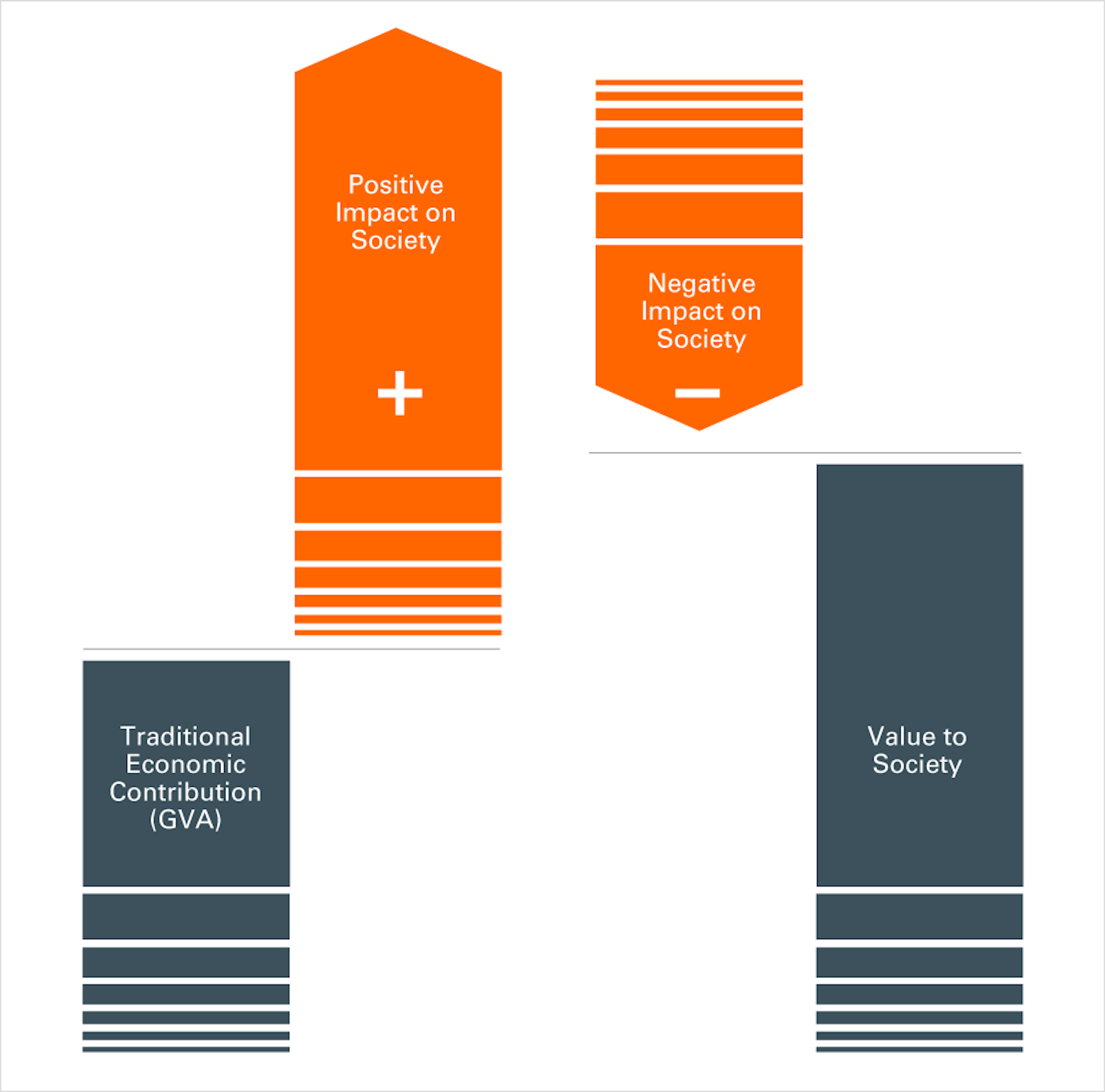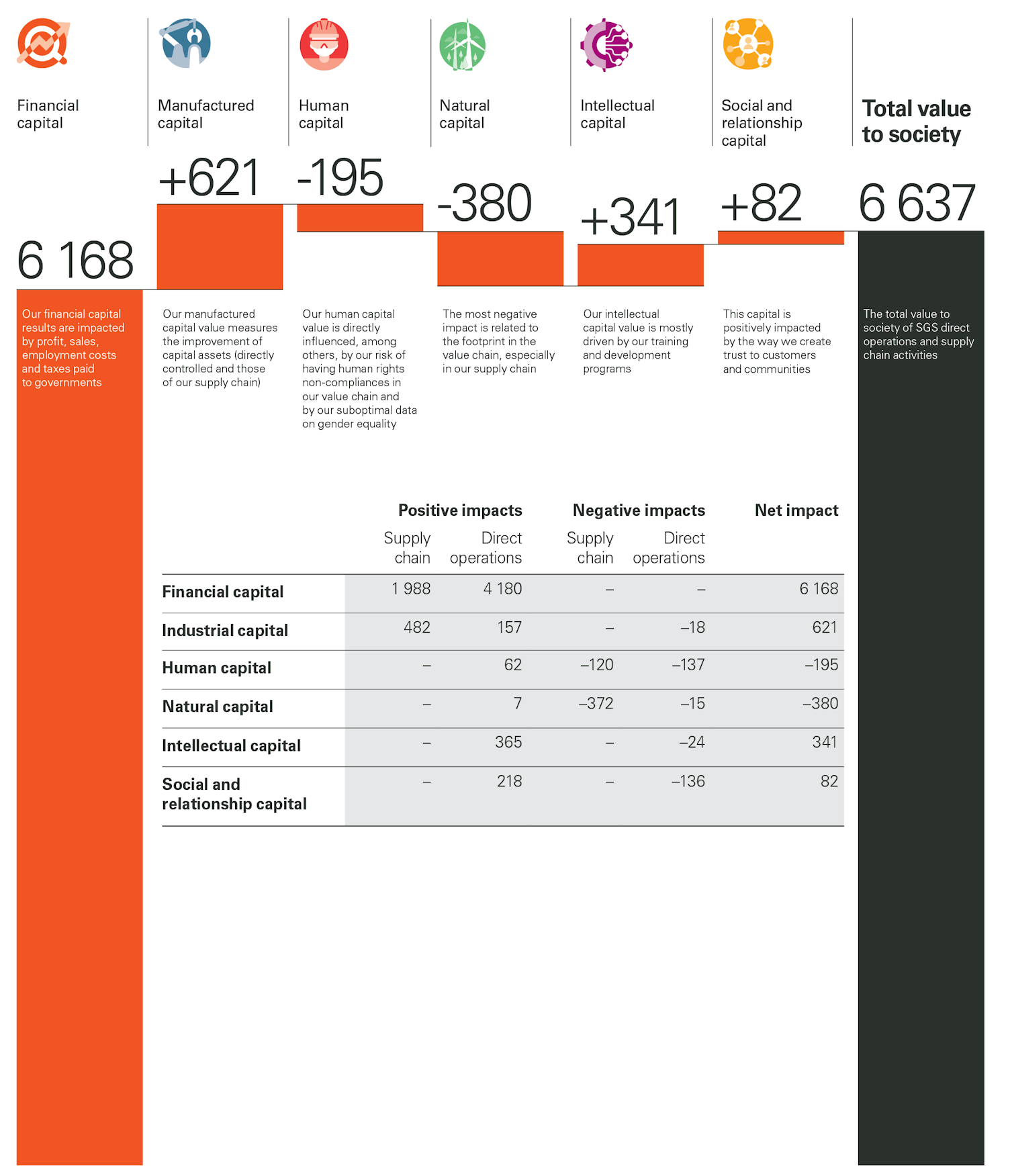Our value to society is to enable a better, safer and more interconnected world.
We are one of a small number of companies that measures value creation in our direct operations, supply chain and services using our unique Impact Valuation Framework.
How we measure our value to society
The SGS Impact Valuation Framework is built around the six "capitals" recognized by the Integrated Reporting Framework as essential for business success: financial, manufactured, intellectual, human, social and natural. Our Framework includes 32 indicators across these capitals, specifically designed to evaluate our impacts. We use internationally recognized databases, globally accepted impact measurement approaches and academic research to build our calculation methodology.

Our calculations
Using our Impact Valuation Framework, we calculate our positive and negative impacts in monetary terms (CHF). We calculate the traditional indicators of socioeconomic contributions, such as the taxes we pay, and add our positive impacts, such as the impact of our investment in community programs, employee training and well-being initiatives. Then we detract our negative impacts, such as the negative impacts of the waste we generate or the electricity we consume, to determine a total figure of the value to society that we have created in a given year.
Direct operations and supply chain
Applying our Impact Valuation Framework methodology, in 2022, our total value to society from our direct operations and supply chain was +CHF 6 637 million. The value of our positive benefit to society was +CHF 7 459 million. We created the majority of this value through profit generation, the paying of taxes and wages, and our investments in training programs and information security. The framework also shows that we generated CHF 822 million of negative societal impacts, arising from the environmental footprint of our supply chain.

An example of our value to society






